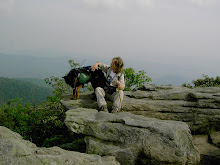Originally posted Wednesday, 10 June on the moodle blog...
I’m experiencing much of what is discussed in the Confronting the Challenge of Participatory Culture: Media Education for the 21st Century.
What’s been interesting to me is how I’ve responded to the article as student/participant and as teacher/educator. I have dual perspectives; both clearly illustrate the immediate need for sound education and opportunity to practice the media practices that are mentioned in the article. My reaction to the information contained in the article is intertwines with the experiences I'm having in the Web 2.0 class. None of this exists in isolation...
That we need to teach media literacy is obvious. The target population, however, is not only our students, but our educators. For that, I agree that a paradigm shift must take place; teaching with Web 2.0 tools and applications, making most of the culture and social networking to engage and support learning is something that must be interwoven into our already busy educational day. As teachers, we cannot simply add another period to our schedule. We must shift our perspective, must understand the challenges that are pointed out in this paper: the participation gap, the transparency problem, and the ethics challenge.
In many communities and schools, are we stuck in the digital age where the emphasis is on providing the computer hardware and stand-alone programs? Statistics can show what percentage of students have access to computers during the day and we’ve used that for years as a measure of providing access to computers for students. A more meaningful analysis will look at how students and teachers use those tools to gather, reflect, and create. In how many classrooms are the computers used for one-way instruction instead of the engaging, interactive collaboration that results in collective intelligence?
I’ve read these sixty pages over a span of several days, and while I’ve been doing that, I’ve also been exploring websites, reading blogs and e-mails, and viewing videos and lectures on YouTube. As a result, I’m living that about which I am reading.
Things I've done and am considering doing for this course...
Play (explore)
Simulate (SL)
Perform (create videos, text, visuals)....
Appropriate/remix media (I’d like to use a YouTube rendition of “She Came in Through the Bathroom Window” to introduce my “Errant Entrance: How Not to Start an Online Class” video)
Multi-task (who could get through this class without multi-tasking?)
Participate (we all are, to varying degrees)
Network (reaching out to each other, to colleagues and friends locally)
Use multiple modalities (video, text, SL and voice; create, read, reflect...)
Evaluate/judge (my own work and the work of others)
I like the concept “intelligence is accomplished rather than possessed.” Anther paradigm shift for our schools...
Informal mentorship – we’ve got that loosely structured in this class. I’ve proposed a tip wiki for the class in the future – something where classmates could post hot links, advice on navigating, etc. so we could have that in a centralized location.
With the huge budget cuts and shortfalls in funds these days, I'm fearful that the gaps will widen and the lack of knowledge on the part of adults/educators that already exists will increase)as well (since the knowledge and information is expanding so rapidly in the creative, evolving world of the web. It's not that money always propels change, but that grants to facilitate programs and an environment that fosters growth may be easier to sustain in times where economic stress is not the norm.
Anne
Tags: media, literacy, teacher, education, participation, gap, multi-task, participate
Subscribe to:
Post Comments (Atom)

No comments:
Post a Comment